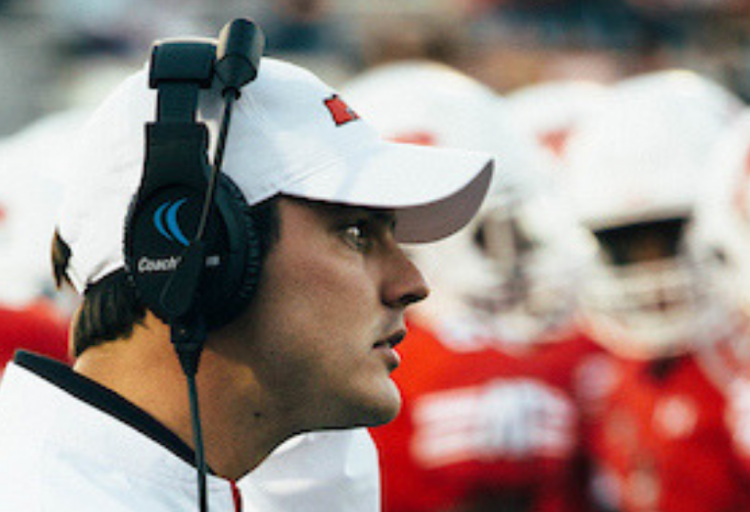–kking27@my.apsu.edu

Tennessee head coach Derek Dooley, left, leaves the field after losing to Vanderbilt in an NCAA college football game on Sunday, Nov. 18, 2012, in Nashville, Tenn. Vanderbilt won 41-18.
Mark Humphrey | Associated Press
The somewhat short career of Derek Dooley at the University of Tennessee didn’t really show much success on the field. The Vols, under his direction, compiled a record of 15-21, including only three Southeastern Conference wins. The 41-18 loss to Vanderbilt was the trigger that sprung Dooley from the driver’s seat.
The amazing thing is that you really can’t say that he did that bad of a job. Although his successes didn’t show on the field, it certainly showed off the field. The football program that he inherited was, for a lack of better words, in ruins.
Phillip Fulmer was fired in the midst of a 5-7 season in 2008, ending his 17-year tenure with a 152-52 record. Lane Kiffin stayed for just one year before Southern California hired him away. Kiffin departed from Tennessee for USC, taking most of his staff after committing many minor violations and almost crippling the program.
These violations, compounded with other infractions in other sports, caused the resignation of the former athletic director and the dismissal of the basketball coach Bruce Pearl. The whole department was in chaos. When Dooley arrived, UT athletics was a mere shadow of what it once was.
This was a job not many people could pull off; not only rebuilding a program but also rebuilding an athletic department as well.
It required patience, hard work and a structured regimen of discipline. This, of course, could not be implemented without casualties, including the dismissal of high caliber players such as Janzen Jackson and Da’Rick Rogers.
He brought back a certain strong foundation to which the football program could build upon.
“Derek Dooley did indeed improve this football program,” athletic director Dave Hart said. “There is no question about that. He inherited a very, very difficult environment, one that I’m now very familiar with having been here for these 13 months. And quite honestly, he was given a pretty short stick to take into that battle. I think given those facts that he did a good job in a lot of areas in putting a solid foundation under our football program.”
“I am sorry we could not generate enough wins to create hope for a brighter future,” Dooley said in a statement released by the university. “Although progress was not reflected in our record, I am proud of the strides we made to strengthen the foundation for future success in all areas of the program. During the last 34 months, I’ve given my all for Tennessee, and our family appreciates all this University and the Knoxville community has given us.”






